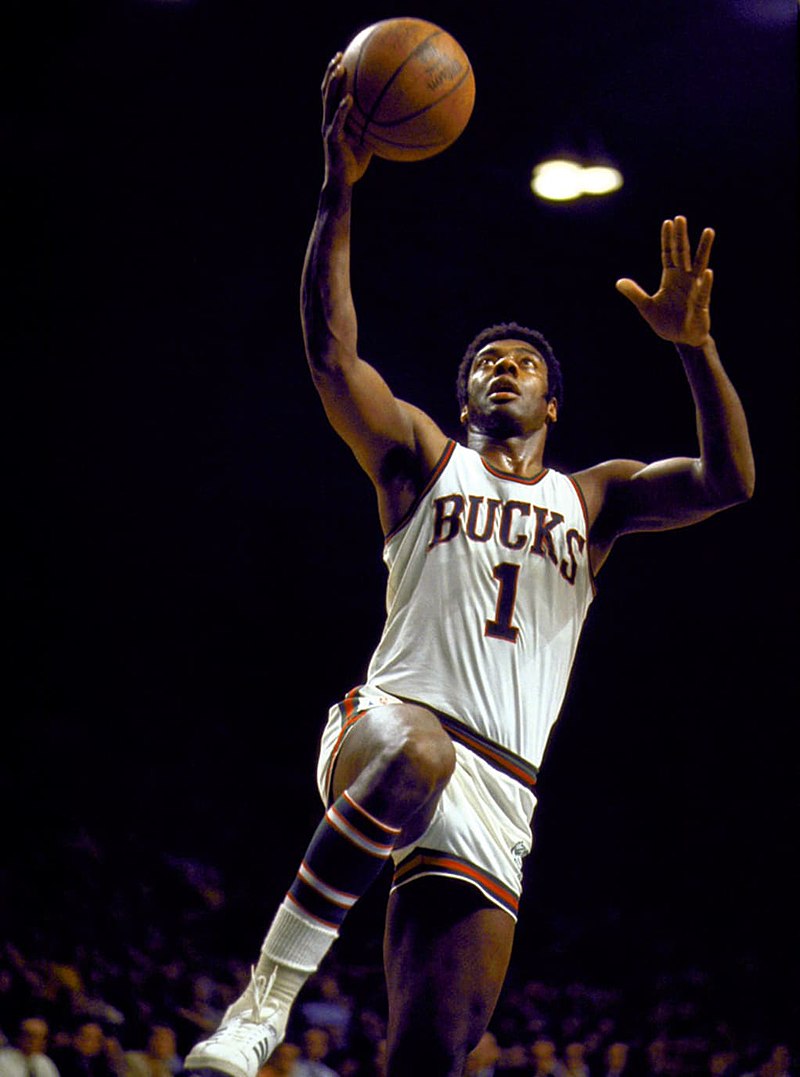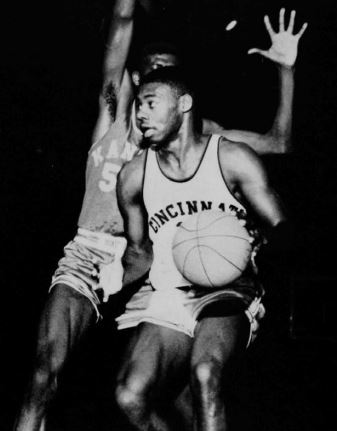Oscar Robertson (Part 1)
Oscar Robertson (Part 1)

Oscar Robertson, known as "the Big O," is a legendary American former professional basketball player who made significant contributions during his tenure in the National Basketball Association (NBA). He played primarily as a point guard for the Cincinnati Royals and Milwaukee Bucks, establishing himself as one of the greatest players in the league's history.
Throughout his illustrious career, Robertson amassed an impressive array of accolades and achievements. He was a 12-time NBA All-Star, an 11-time member of the All-NBA Team, and earned the MVP award once. Notably, in the 1962 NBA season, Robertson made history by becoming the first player ever to average a triple-double for an entire season, a feat accomplished only by Russell Westbrook since then.
Robertson played a pivotal role in leading the Milwaukee Bucks to their first NBA championship during the 1970–71 season. His remarkable talent and leadership on the court contributed significantly to the team's success.
Beyond his on-court accomplishments, Robertson's legacy extends to his advocacy for player rights and his involvement in landmark legal battles. He played a crucial role in Robertson v. National Basketball Ass'n of 1970, a landmark antitrust suit that led to significant reforms in the NBA's free agency and draft rules, ultimately resulting in higher salaries for players across the league.
In recognition of his outstanding contributions to the sport, Robertson has been honored with inductions into multiple Hall of Fames, including the Naismith Memorial Basketball Hall of Fame in 1980 and the FIBA Hall of Fame in 2009. Additionally, he has been recognized as one of the 50 Greatest Players in NBA History and was named to the NBA 75th Anniversary Team in 2021.
Off the court, Robertson's impact continues to be felt through various honors and awards named in his honor, such as the Oscar Robertson Trophy, presented annually to the nation's outstanding men's college basketball player. He remains a revered figure in basketball history, celebrated for his exceptional skills, leadership, and advocacy for player rights.
Oscar Robertson's early life was marked by humble beginnings and a passion for basketball that would eventually propel him to greatness. Born into poverty in Charlotte, Tennessee, on November 24, 1938, Robertson's family relocated to Indianapolis, Indiana, when he was just 18 months old. Growing up in a segregated housing project, Robertson faced the challenges of racial discrimination that were prevalent during that time.
Despite the obstacles he encountered, Robertson discovered his love for basketball at a young age. While baseball was more popular in his neighborhood, he gravitated towards basketball, considering it "a poor kids' game." He honed his skills by improvising with makeshift equipment, using tennis balls and rags wrapped with rubber bands to shoot at a peach basket installed at the back of his family's home.
This early exposure to the game and his determination to excel laid the foundation for Robertson's future success in basketball. His journey from these humble beginnings to becoming one of the greatest players in NBA history is a testament to his talent, hard work, and resilience in the face of adversity.
Oscar Robertson's high school career at Crispus Attucks High School in Indianapolis, Indiana, laid the groundwork for his future success in basketball. Under the guidance of coach Ray Crowe, Robertson developed a fundamentally sound style of play that would serve him well throughout his career.
As a sophomore in 1954, Robertson showcased his talent on the court, leading the Attucks team to the semi-state finals (state quarterfinals), where they faced eventual state champions Milan. This memorable game would later inspire the 1986 movie "Hoosiers."
The following year, as a junior, Robertson played a pivotal role in Crispus Attucks' historic run to the state championship. The team dominated its opponents with a remarkable 31–1 record, securing the first state championship for any all-black school in the nation. This victory was a significant milestone, not only for the school but also for the city of Indianapolis, marking the first state championship by an Indianapolis team in the prestigious Hoosier tournament.
In 1956, Robertson and the Crispus Attucks team achieved even greater success, finishing the season with an undefeated record of 31–0 and securing a second consecutive IHSAA Men's Basketball Championship. Their perfect season and a state-record 45 consecutive victories made them the first team in Indiana to achieve such a feat.
Despite their remarkable accomplishments on the court, the team faced racial discrimination off the court. Following their championship victories, they were paraded through town as tradition dictated but were then taken to a park outside downtown to continue their celebration, unlike other teams. Robertson recalled that officials believed the black community might cause unrest, reflecting the racial tensions of the time.
In his senior season, Robertson continued to excel, averaging 24.0 points per game and earning the prestigious title of Indiana Mr. Basketball in 1956. Following his graduation, Robertson took his talents to the University of Cincinnati, where he would further solidify his reputation as one of the greatest basketball players of all time.
References
- "Oscar Robertson stats". Basketball-reference.com. Archived from the original on May 12, 2013. Retrieved January 25, 2007.
- "Oscar Robertson Bio". NBA.com. Archived from the original on February 18, 2018. Retrieved January 25, 2007.
- a b "NBA 35th Anniversary All-Time Team | Basketball-Reference.com". Archived from the original on May 15, 2021. Retrieved January 4, 2022.
- "Oscar Robertson Basketball Hall of Fame summary". Hoophall.com. Archived from the original on January 21, 2007. Retrieved January 25, 2007.
- a b "Wooden, Russell lead founding class into Collegiate Hall of Fame". Abc.com. Archived from the original on April 22, 2009. Retrieved January 25, 2007.
- ^ "Top N. American athletes of the century". ESPN. Archived from the original on April 28, 2012. Retrieved May 8, 2015.
- ^ "The Naismith Memorial Basketball Hall of Fame – Hall of Famers". Hoophall.com. Archived from the original on February 15, 2011. Retrieved May 8, 2015.
- a b "NBA 75th Anniversary Team announced". NBA.com. October 21, 2021. Retrieved March 16, 2022.
- ^ "Oscar defined the triple-double". ESPN. Archived from the original on October 27, 2011. Retrieved May 8, 2015.
- ^ Dorsey, Patrick (February 27, 2009). "Attucks' win helped race relations". ESPN.com. Archived from the original on January 5, 2016. Retrieved December 13, 2020.
- ^ "2010-11 Men's basketball Media Supplement" (PDF). Grfx.cstv.com. Archived (PDF) from the original on March 4, 2016. Retrieved May 8, 2015.
- a b "Oscar Robertson Trophy". Usbwa.com. Archived from the original on February 13, 2007. Retrieved January 25, 2007.
- ^ "1960 Olympic Games : Tournament for Men". Archived from the original on August 26, 2019. Retrieved August 26, 2019.
- ^ "Games of the XVIIth Olympiad -- 1960". Usabasketball.com. Archived from the original on December 31, 2006. Retrieved January 31, 2007.
- ^ "Los Angeles Lakers at Cincinnati Royals Box Score, October 19, 1960". Basketball-Reference. Archived from the original on October 31, 2019. Retrieved October 31, 2019.





































